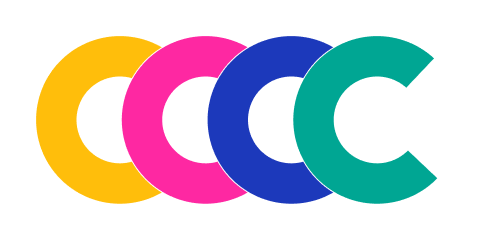
AI is not our rival but a colleague
Nowadays, everywhere we look, it’s AI. From self-driving cars to personalized shopping recommendations, artificial intelligence is clearly here to stay. But how does this affect us who work every day?
First off, we should realize that AI is not out there to deprive us of our jobs and trap us into troubles. In essence, AI tends more towards cooperation than rivalry.
Certainly, some repetitive and routine tasks might be automated. Think beyond job thief mentality and let it be perceived as an instrumental tool to relieve us from such boring duties.
Rather than being job stealers, they should be viewed as powerful tools!
Here’s an example:
Suppose you are employed in customer service. Now you may spend so much time answering the same basic questions repeatedly.
If those monotonous inquiries were handled by chatbots powered by AI, you would have more time at your disposal to tackle intricate issues that require human intervention.
That’s where the real value lies; we’re just getting a boost rather than being replaced.
Upskilling as a Way of Adapting
However, changes also come with their share of problems. To fully utilize this AI-driven future ahead of us we need change; this means upskilling too!
Imagine adding new tools into your toolbox! Upskilling refers to acquisition of knowledge which will help you become more flexible and pertinent within this transforming environment.
What makes these skills fascinating is that they are all about working with AI instead of competing against it.
Learning isn’t enough; upskilling means preparing oneself for life in an AI world.
Skills like data analysis, programming or even creative problem-solving are getting increasingly important these days. So how can we brace ourselves for such shifts? The answer calls for training sessions.
Training for Tomorrow
Companies must invest in programs helping employees switch to new positions. It’s not about throwing out the old and bringing in the new; it’s about evolving.
People who worked in traditional jobs for many years can learn how to apply AI in their work. For example, instead of manual labor, a factory worker can be taught how to operate and maintain such machinery.
AI doesn’t replace people; it empowers them to do more complex and creative work.
Firms have to prioritize this training, but we also have a part to play here – let’s take the first step. It will be a game changer if we get proactive with learning new skills through signing up for online courses or attending workshops. Provided we are prepared, there is nothing terrifying about the future.
A Collaboration-Led Future
The most inspiring thing is that collaboration could become possible. When AI works with humans together, they make smarter decisions faster and facilitate more invention.
View AI as your new colleague who is excellent at number crunching, sifting through data and speeding up mechanical tasks etc….
So that humans are able to concentrate on the creative side of things instead of endlessly performing repetitive tasks like data entry that robots are good at doing quickly and efficiently.
Finally, tomorrow’s workforce will be different from what we are used to but this does not necessarily mean that this is a bad thing.
We can get ahead of the game and prosper in a world where AI becomes our partner, not an adversary if we think properly and focus on upskilling ourselves.
The future isn’t to be feared if we’re ready for it.
Conclusion
There is a bright future out there, and AI is one among many tools to be used in molding it. So, instead of fearing AI changes, let’s embrace the new opportunities they give for growth.
From that perception, AI becomes a partner more than a competitor, and we get to do more creative, strategic, and impact work while AI takes over the routine stuff.
This would be a shift, not definitely easy; howbeit, the key to thriving in such a landscape is upskilling. Whether self-driven or company-driven training, it is through being adaptable and curious that we will work with AI and get roles and opportunities that we couldn’t have imagined.
Embracing AI, learning from it continually, and putting in place powers that can be harnessed from AI will let us shape an active future where we will work smarter—not harder—and be at the forefront toward a more innovative and collaborative world.

